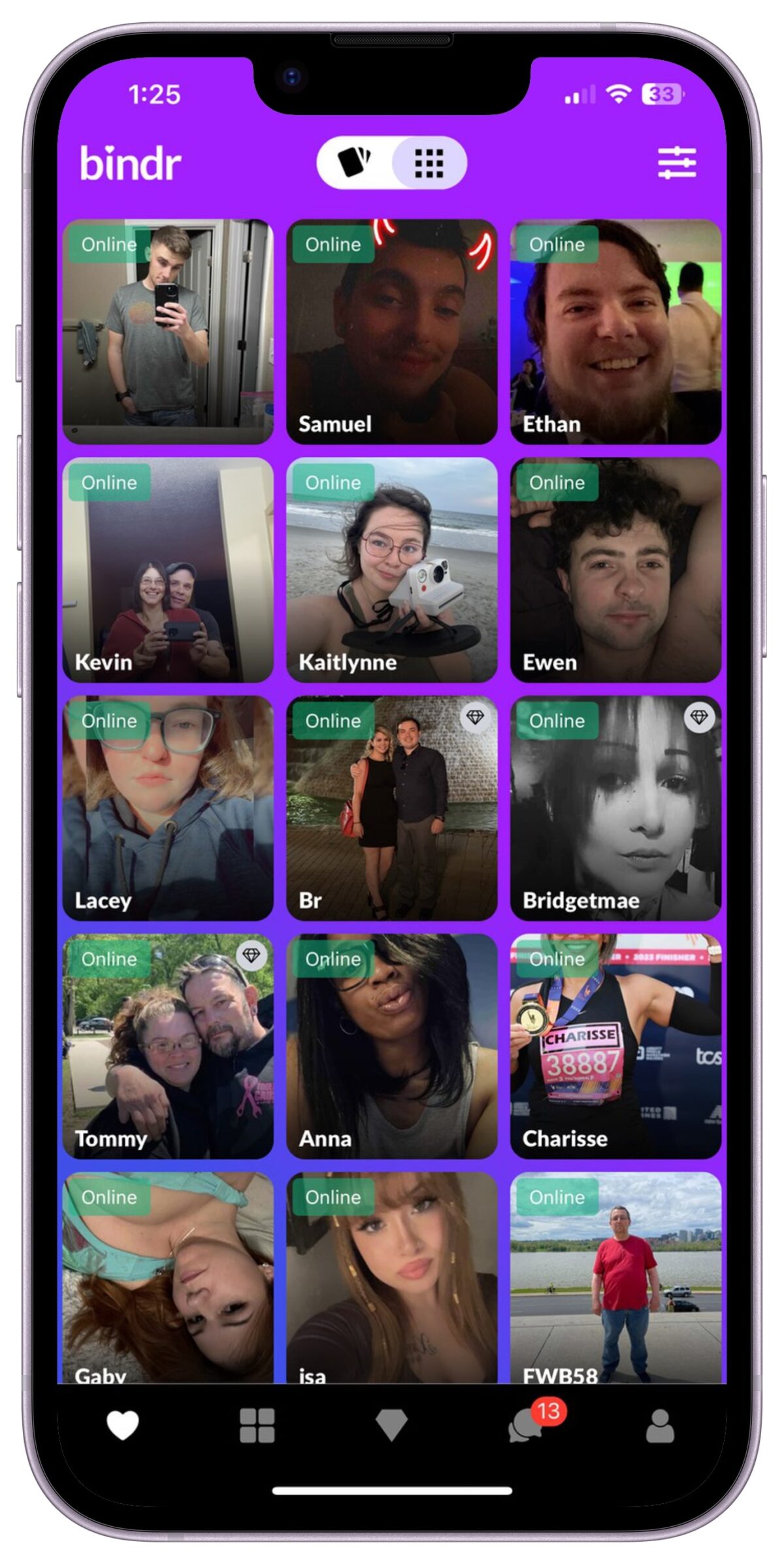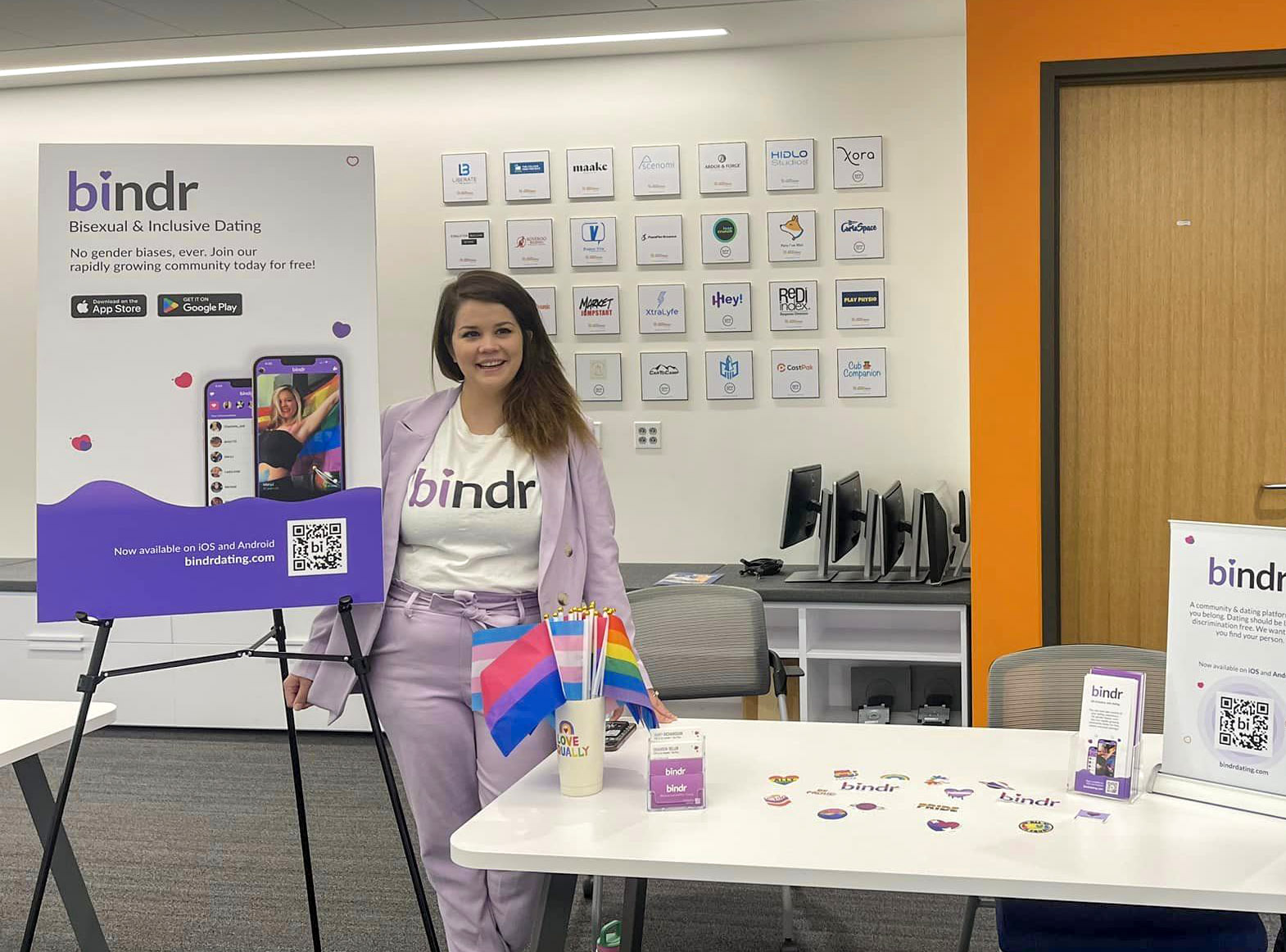If you’re bisexual, sexually fluid or experimenting with your sexuality, dating apps can be pretty frustrating, says Bindr CEO Mary Richardson.
After being banned from Tinder and a few dating apps prior to that, a fed-up Richardson decided to create a bisexual dating app. She partnered with cofounder Brandon Teller, and in August 2022, Bindr was born.
“I didn’t feel like there was anywhere that was really fluid dating that I could be myself,” Richardson told Technical.ly. “It was kind of out of anger and frustration that I came in and I was like, ‘Let’s just do it’ … there wasn’t anywhere that we felt comfortable in the dating scene and knew it must be a pain point for other people.”
At the beginning of March, Binder was accepted into Innovation Works’ AlphaLab 2024 accelerator.
A Penn State grad, Richardson learned about the program during a field trip a while back, but didn’t feel ready to apply until December of last year. Looking back, she feels like she knew it’d be the perfect fit, as it allowed the company to remain Pittsburgh-based.

Bindr, which boasts 100,000 users, can currently be downloaded as an app in the Apple or Google stores, or used on the company’s website free of charge.
Unlike many platforms, Bindr users aren’t required to label themselves, in the interest of inclusivity. Additionally, Richardson said, the app’s design includes a grid view similar to that of Instagram, so while you can swipe right based on your interests you can also post pictures, interact with fellow users, and view their photos on your timeline.
“It’s still very much a dating app, but it’s kind of gearing more towards a social app as well, with the timeline and ability to talk to people more openly,” she said. “We’re trying to build a very positive and inclusive space for everyone, not just the big three [gay, straight, lesbian].”
Within the first two weeks of Bindr’s existence, 300 users had signed up — and usage exploded from there. The exponential growth shows many people had been longing for a more inclusive dating app, Richardson says. When she and Teller realized the strength of the demand, they entered the Invent Penn State IncU Pitch competition and secured the initial funding the young company needed.
“I was one of the only women that participated and I ended up winning first place,” Richardson said. “And that got me $15,000. I did a few other programs in pitch competitions that same season, and we had…$37,000 that I was able to get equity-free. And that really propelled our whole first year.”
Currently, the cofounders are seeking additional funding in the form of a $1.5 million seed round. For the moment, the AlphaLab 2024 acceptance came with a $100,000 infusion.
Once Bindr’s time in AlphaLab is complete, Richardson anticipates participating in more accelerator programs, such as the California-based Y-Combinator.
This June, people can look for Bindr at Pride events in Miami, Pittsburgh, Philly, LA, Washington, DC, Columbus, Chicago and New York City, per Richardson, who wants potential users to know about the welcoming and safe platform.
“With Bindr, everybody is welcome. If there’s any negativity, they should report it and we would handle it and take it very seriously,” Richardson said. “We want anyone in between who maybe don’t know their sexual orientation or don’t have a label to their gender identity. That’s where our app is — it’s for everybody.”







